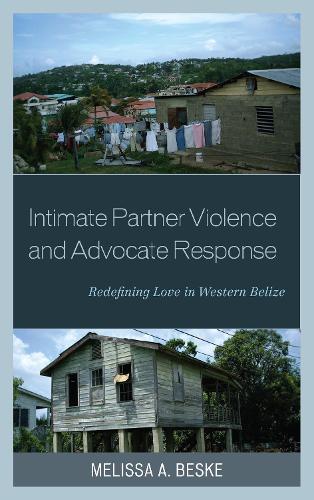
Intimate Partner Violence and Advocate Response: Redefining Love in Western Belize
(Hardback)
Publishing Details
Intimate Partner Violence and Advocate Response: Redefining Love in Western Belize
By (Author) Melissa Beske
Bloomsbury Publishing PLC
Lexington Books
21st April 2016
United States
Classifications
Professional and Scholarly
Non Fiction
Violence and abuse in society
Gender studies: women and girls
362.8292097282
Physical Properties
Hardback
208
Width 159mm, Height 238mm, Spine 20mm
458g
Description
Intimate Partner Violence and Advocate Response: Redefining Love in Western Belize offers new insight into the cross-cultural analysis of gender-based intimate partner violence by blending activist anthropology with in-depth ethnographic research to evaluate and help ameliorate the crisis in Belize. Drawing from twenty months of fieldwork in the Belizean Cayo District conducted between 2002 and 2013, Melissa A. Beske investigates the prevalence and complexity of partner abuse, the contributing cultural and structural factors, and the advocate dynamics across local, national, and transnational frameworks in combating the problem. Combining enlivened narratives, comparative viewpoints, and scholar-activism, this book not only illustrates the lived suffering of partner abuse in Cayo, but it also engages with the passionate commitment of survivors and supporters as they endeavor to create a more equitable and peaceful community. In doing so, it demonstrates an effective strategy for the interdisciplinary assessment of gender-based abuse, which satisfies demands for theoretical impartiality while simultaneously enabling researchers to take an ethical stand in social causes.
Reviews
Melissa A. Beske has produced a sensitive and engaged ethnography that simultaneously captures the intimate details of life in Belize while speaking to broader issues of gender violence and gender equality. Beske deftly handles the ethical dilemmas inherent in engaged activist ethnography and applied anthropology. Her book is a wonderful example of how to balance cultural sensitivity with collaborative partnerships for social change. Beskes writing evokes the individual and collective struggle for justice and provides luminous life histories of the Belizean individuals whose experiences she respectfully and beautifully narrates. This ethnography is a must-read for anyone interested in applied anthropology and conducting ethnographic research for social change. -- Hillary J. Haldane
Through richly narrated and deeply intimate ethnographic descriptions, Beske shares the stories of women affected by violence in Belize and the intersecting issues of gender, ethnicity, and class. She skillfully connects the womens lives with the struggles of women around the world affected by violence, making it clear that this global issue requires steadfast attention from scholars and activists from multiple disciplines. By examining issues such as healthcare, economic structures, faith-based organizations, education systems, and political structures rooted in histories of colonialism and conquest, Beske reminds us of the numerous causes of gender-based inequalities and the radiating effects of intimate partner violence. Her commitment to ending intimate partner violence in Belize and around the world is theoretically grounded in her anthropological research and commitment to anti-violence activism. -- Jennifer R. Wies
Scholar-activist Melissa Beske has a firm grasp on Intimate Partner Violence (IPV) in San Ignacio Belize. Intimate Partner Violence and Advocate Response: Redefining Love in Western Belize is a comprehensive analysis of important social institutions that are at play in the perpetuation of intimate violence. Her multi-method approach uses broad survey data to provide an objective understanding of the problem, but it maintains a humanistic analysis by including the voices of both men and women affected by IPV. Likewise, she successfully captures ethnic variations in understanding and responding to IPV. The real strength to this book, however, is the example it provides of an engaged ethnography. Beske and this text are clearly part of the solution to reducing IPV in San Ignacio. What we have here is good science and good activism. -- Laura J. McClusky, Wells College
Author Bio
Melissa A. Beske is faculty in the History and Humanities Department at Palmer Trinity School.
